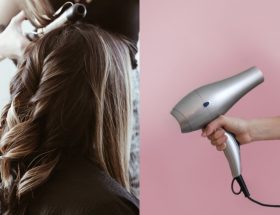This post may contain affiliate links. Any sales made through such links will reward me a small commission – at no extra cost for you!
Written by Dr. Ammar Mahmoud
Acne scars can really take their toll on a person’s confidence and self-esteem. While there may be numerous topical products out there designed to fade those scars away, these often do not work in the way that they promise, leaving people more disappointed than ever.
However, with laser technology becoming increasingly advanced, laser acne scar treatments are quickly becoming the go-to scar removal method for many. If this is something that you have been considering, here are six things you need to know before you commit to a treatment plan.
1. Lasers Work Better Than Other Treatments at Fading Acne Scars
Why have lasers become such a popular acne scar treatment?
Simply because they are so effective. Yes, there are plenty of other alternative treatments out there, but these don’t have such a noticeable and long-lasting effect.
Take chemical peels, for example. These only work on a superficial level. And those that could potentially penetrate deep enough to reach scar tissue are pretty dangerous. Dermabrasion is another popular treatment, but it could result in prolonged redness. It also doesn’t have a significant effect on acne scars when used alone.
Although lasers do not completely remove an acne scar, there is no treatment out there that actually does. Instead, laser treatments are the next best thing. They are able to permanently fade scars to a point where they are barely visible.
2. There are Different Types of Lasers for Treating Acne Scars
There are actually quite a few different lasers that are used in acne scar treatments, and each works in its own way.
Ablative lasers are the most powerful, with results visible after around six months after treatment. There are a few types of ablative lasers used for acne scars, such as the CO2 and the Erbium.
Non-ablative lasers are milder. While results do take longer to become visible, and more treatments are usually needed, this is the option best suited for those with darker skin tones. Downtime for these treatments is usually less, and the procedure is virtually painless.
Fractionated lasers are another option, lying somewhere in between ablative and non-ablative.
How do you know which laser type to pick?
It will all depend on the type of scars you have. Each laser is best suited to a certain scar type, and this is something your doctor will discuss with you when putting together your treatment plan.
3. A Multi-Modal Approach is Most Effective
People usually have more than one type of acne scar, meaning that combining multiple different treatments is usually the fastest route to clear and bright skin. This means that, in addition to laser treatments, other treatment types should be used too.
Again, this is something that your doctor will advise you on, with a good practice able to provide all of these treatments under one roof. For example, severe scarring will likely need a combination of a FRAX laser, a chemical peel, and fillers.
On the other hand, milder scarring would be best treated with a non-ablative resurfacing laser in combination with microneedling and microdermabrasion.
Those who have darker skin tones may also not be ideal candidates for some forms of laser treatment, making a multi-modal approach even more important. Darker skin tones have an increased risk of hyperpigmentation after laser treatments, making it important to pick a doctor who has experience in treating different skin tones.
All of this is why customized treatment plans are a must when it comes to laser acne scar removal. There isn’t a “one size fits all” solution here. Your doctor should be discussing this with you right from the start.
4. Laser Acne Scar Treatments are Quite Comfortable
Many expect laser treatments to hurt, and, back in the day, they really did. However, with so many innovations in the technology used, laser treatments today, especially the ones involved in acne scar removal, are virtually pain-free.
Most patients describe the process as being comfortable, making multiple treatments a breeze.
If you are having a larger area of skin treated by a laser and are worried about the pain, you can ask your doctor to apply a topical numbing solution before each treatment. This means that you won’t feel the laser at all, which is always popular with those who have a lower pain threshold.
5. Laser Treatments Will Also Provide Anti-Aging Skin Benefits
There are many laser treatments out there designed to provide anti-aging benefits to the skin. While this isn’t the focus of acne scar treatments, the anti-aging effects that they provide is definitely an added bonus to patients!
The way in which a laser creates a controlled amount of damage in the deeper layers of the skin stimulates the natural healing process. This involves collagen production – one of the key proteins that gives your skin its firmness and fullness.
The result is smoother and tighter skin in the areas where laser treatments have been carried out. This effect can be enhanced even further when combined with topical collagen-stimulating ingredients.
Retinol products are great for this, as are those containing glycolic acid, vitamin C, and peptides. However, make sure that you introduce any new topical ingredients slowly. Your skin will be ultra-sensitive for a while after a laser treatment, and anything too harsh could cause irritation. A patch test is always recommended first to prevent a serious reaction.
6. A Laser Can Be Dangerous in the Wrong Hands
The law surrounding laser treatments is lacking. Estheticians who have never studied laser treatments before are allowed to carry the procedure out. And this lack of experience can be dangerous. Even a tiny variation in the heat or light expelled by the laser could see a patient experiencing hyperpigmentation, and even a severe burn.
While every state has their own rules when it comes to performing laser acne scar treatments, people need to be vigilant about where they seek their laser treatments from. Look for a board-certified dermatologist or plastic surgeon. Make sure that they have had plenty of experience with using lasers to treat acne scars. Especially when it comes to the specific scars you have.
Most of the complications that arise after laser acne scar treatments are due to mistakes made by inexperienced practitioners. When it comes to your skin, you don’t want to take any chances.
Conclusion
There are numerous ways to treat and prevent acne scars, but laser treatments still remain the most effective. No matter the type or severity of your scars, there is a laser treatment out there that can help to remove them, giving you back the clear and healthy skin of your youth.
About the author

READ NEXT: HOME REMEDIES FOR ACNE SCARS – 5 BEST RECIPES
















Wow, it’s interesting to learn that you can use a laser to remove acne, and this can get rid of them fast without inflicting pain to the patient! My boss is looking for a way to improve her appearance since her long time boyfriend is finally coming home after living in a different country for a while now. I’ll be sure to pitch this idea to her as soon as I meet her again.